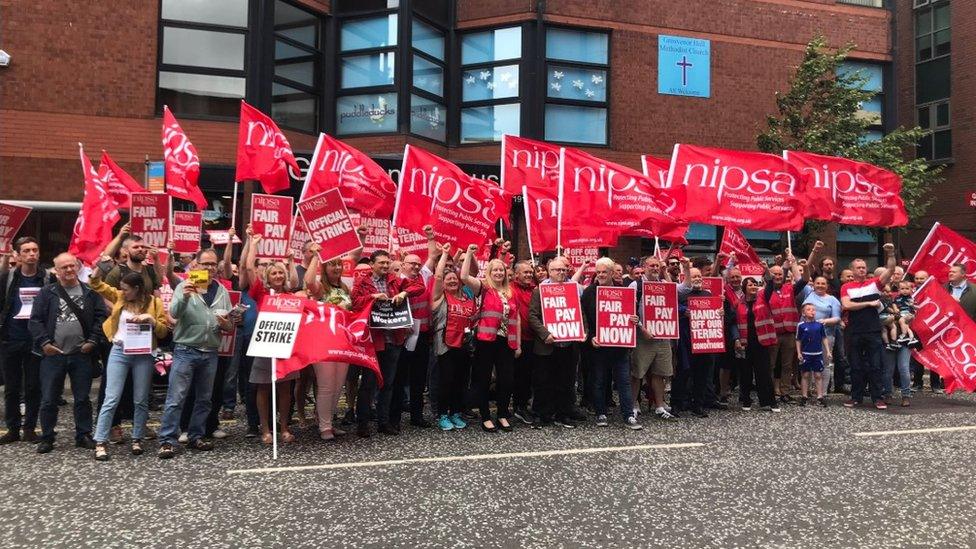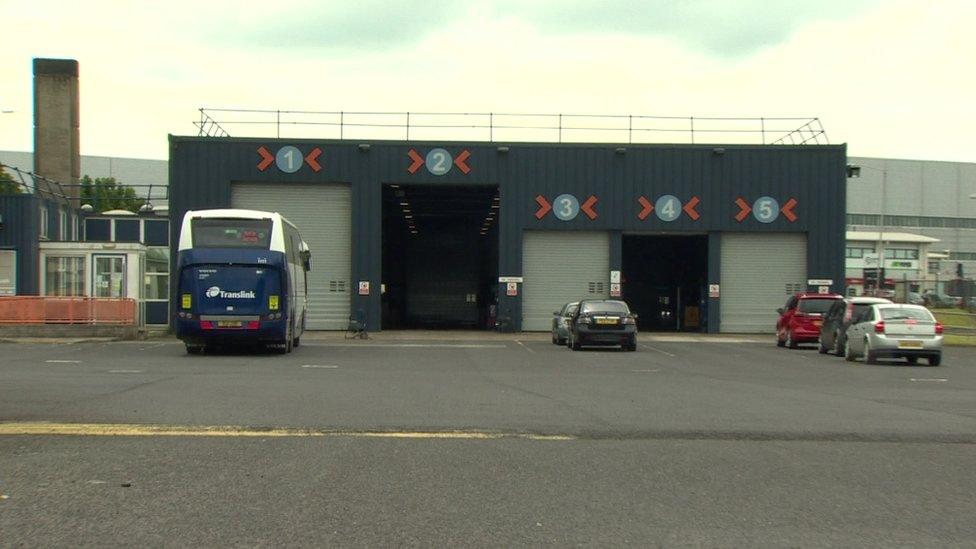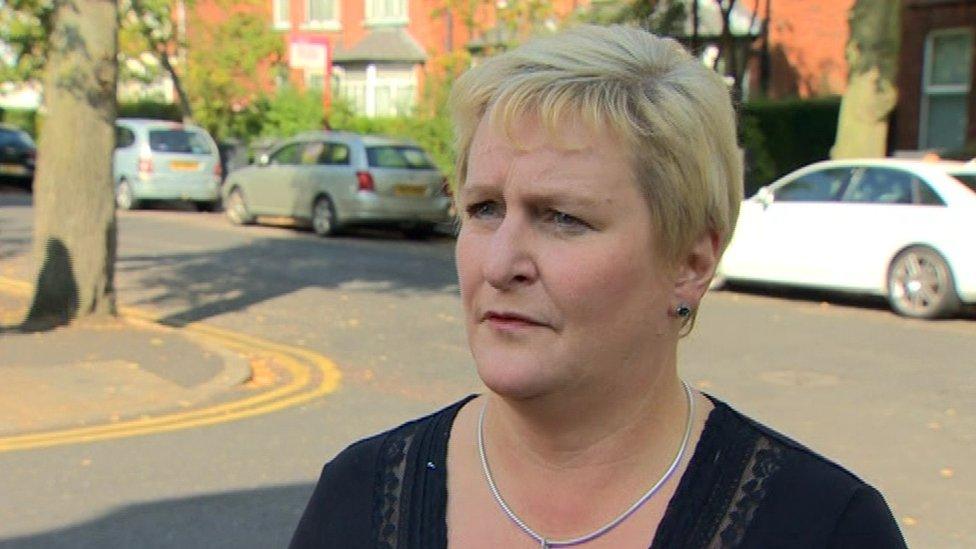NI civil servants strike over pay and conditions
- Published
- comments

Nipsa members are staging pickets throughout Friday to protest against their pay deal
Thousands of Northern Ireland civil servants are staging a one-day strike over their pay and working conditions.
It follows a vote by Northern Ireland Public Service Alliance (Nipsa) union members. It said they have had below-inflation pay rise for nine years.
Stormont's Department of Finance said the rise was "fair in the context of the challenging financial environment".
It estimated 4,247 staff are on strike but added: "The vast majority of public services continue to be delivered."
Nipsa members are picketing a number of government buildings and the union has held rallies in Belfast and Londonderry.
How have public services been affected?
The Northern Ireland Civil Service (NICS) is one of Northern Ireland's largest employers, with more than 23,000 permanent staff who work across a range of sectors including road maintenance, vehicle testing, jobs and benefits offices, courts and prisons.
People claiming Job Seekers Allowance (JSA) have been "excused" from having to sign on during Friday's strike, according to the Department for Communities.
Its spokeswoman also confirmed:
All benefit payments will be "issued as normal";
All digital benefit services are "available as usual";
However, benefit offices' telephone lines "may be busier than normal".
MOT testing is one public service which has been under particular pressure, with motorists already facing lengthy delays for an appointment.

Motorists with MOT appointments were advised to attend as normal during the strike
A spokeswoman for the Department for Infrastructure (DfI) said its staff were "doing all that we can to ensure that test centres will open as normal and disruption to our customers minimised".
"Our advice is that customers with appointments should attend as scheduled."
However one MOT centre in Newry has been closed, resulting in motorists who had appointments for Friday complaining that they were not warned about the closure.
In response, the DfI said they are "in the process of contacting" affected drivers and hoping to "reschedule tests over the weekend".
Allow X content?
This article contains content provided by X. We ask for your permission before anything is loaded, as they may be using cookies and other technologies. You may want to read X’s cookie policy, external and privacy policy, external before accepting. To view this content choose ‘accept and continue’.
Why are civil servants striking over pay?
Most civil servants are set to receive a 1.25% pay rise for the 2018-2019 financial year, but Nipsa points out this will not keep up with the cost of living as inflation is running at 2%.
The very lowest paid civil servants are in line for a larger pay rise of 3%.
"The public will be shocked to learn that the lowest paid civil servants had to get a slightly higher pay increase, not because of the generosity of the employer, but to ensure that civil servants were not paid below the national minimum wage," Nipsa's general secretary Alison Millar said.

Alison Millar said hard-working civil servants felt "enough is enough"
The union has claimed that more than half (53%) of civil servants earn less than the average wage in Northern Ireland.
It said many of its members "now rely on second jobs and working tax credits to make ends meet".
Almost 6,000 Nipsa members took part in a ballot for industrial action and more than two-thirds (68.5%) voted to strike.
Ms Millar said it was "not a decision our members took lightly", but after years of below-inflation pay rises, many felt "enough is enough".
She said government employees "who have kept the civil service running" in the absence of devolved government at Stormont must be "appropriately rewarded".
NICS has been tasked with the day-to-day running of public services since the DUP/Sinn Féin-led coalition government collapsed over two and a half years ago.
What has the employer said?
A spokesperson for Stormont's Department of Finance (DoF) said the pay award was "fair in the context of the challenging financial environment the Northern Ireland Civil Service is operating in with finite resources available and increasing pressures".
The cost of the disputed pay rise currently stands at about £16.4m, which is just over 2% of the annual NICS pay bill.
"DoF is keen to tackle low pay in the NICS and so the pay award includes a larger increase of 3% at administrative assistant and analogous grades, with all others receiving a 1.25% uplift as well as any progression payment due," the department said.
"The 3% award was not required by minimum wage legislation," it added.
Even though the 2018 pay offer has been rejected by trade unions, DoF said steps were being taken to "implement" the rise, and it would be paid to NICS staff on 29 July.